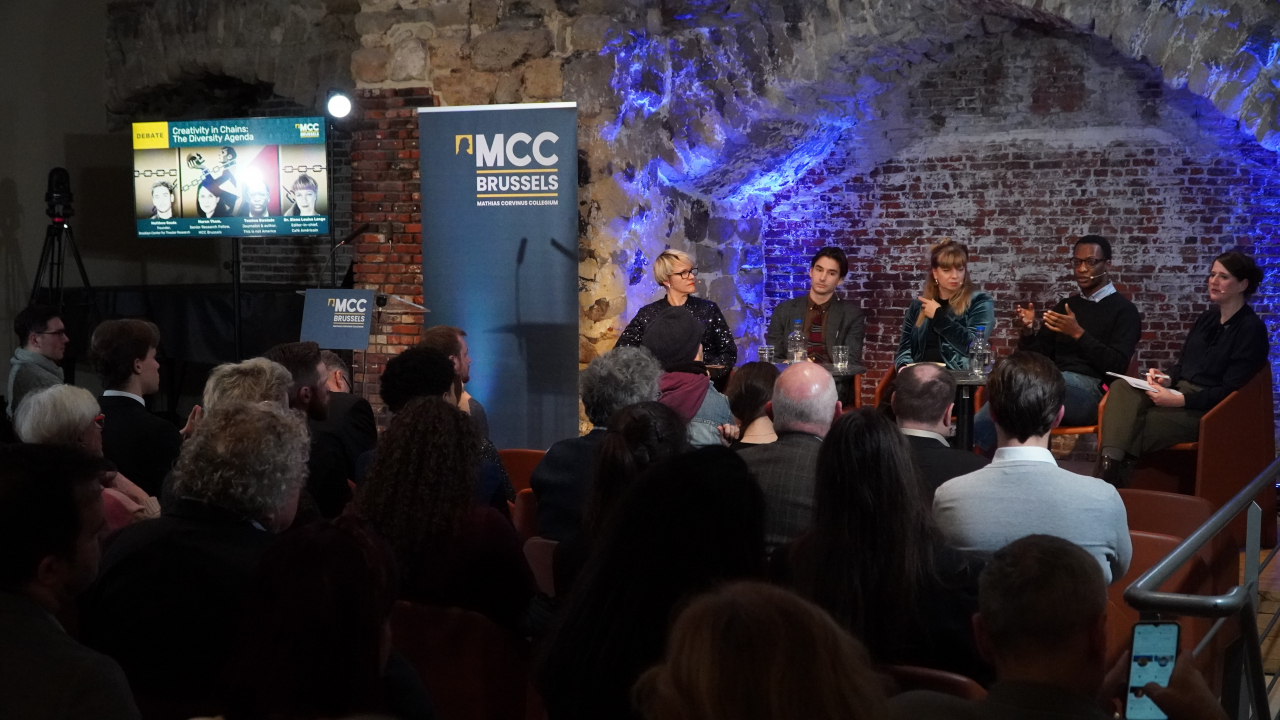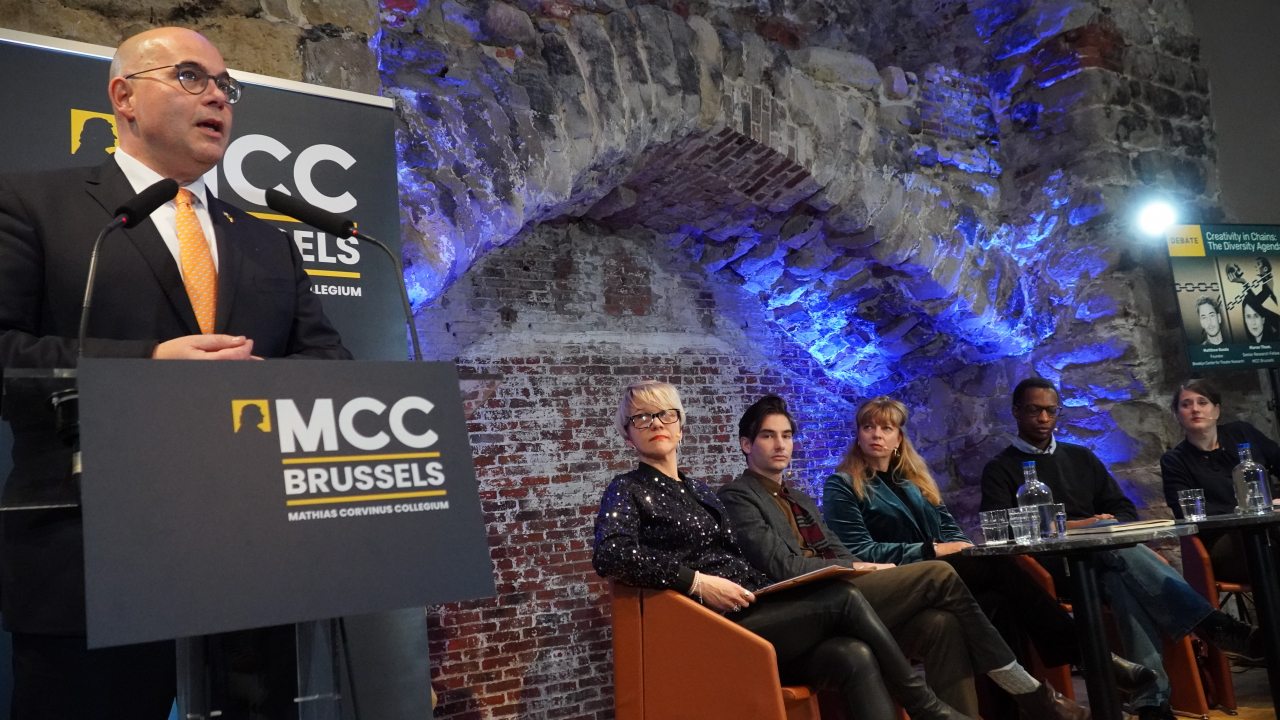Reading time: 2 minutes
The event entitled “Creativity in chains: The Diversity Agenda” gathered international film, theater and literary experts to explore the freedom of artists. Political ideologies and regulations constrain not only freedom of expression but also artistic expression as well. The public discussion, attended by a number of artists, was organized by the MCC Brussels at the Liszt Institute - Hungarian Cultural Center.
The event opened with remarks from Hungarian Ambassador to Belgium, H.E. Tamás Iván Kovács, who celebrated Central Europe’s vibrant cultural heritage. However, he expressed caution about the prescriptive use of "diversity," warning that such approaches risk stifling artistic freedom and diminishing cultural authenticity. Agnieszka Kolek, Head of Cultural Engagement at MCC Brussels, expanded on this theme by sharing her experiences as an artist who faced pressure for her views. Kolek argued that inclusion quotas often transform art into a tool for political agendas, undermining its potential for innovation and self-expression.
Matthew Gasda, founder of the Brooklyn Center for Theater Research, shared his journey as an underground artist navigating a polarized cultural environment. He emphasized the difficulty of creating work free from ideological expectations, advocating for art that resists prescribed politics. Dr. Elena Louisa Lange, editor-in-chief of Café Américain, criticized diversity quotas as authoritarian, reducing individuals to representatives of predefined categories. She contended that such standards strip art of its imagination and universality, resulting in homogenized cultural outputs.
Journalist and author Tomiwa Owolade highlighted the lack of intellectual diversity in modern discussions about inclusion. He stressed the importance of curiosity and pluralism as cornerstones of creativity and warned against the conformity that threatens the arts today. Dr. Maren Thom, Senior Research Fellow at MCC Brussels, analyzed the misuse of "representation" in art and called for a return to universal, imaginative storytelling that transcends societal divisions. She emphasized the need to reclaim populist art as a means of fostering shared humanity.
The event concluded with a united call to defend artistic freedom and create spaces where art can flourish beyond ideological constraints. Panelists underscored art’s essential role in fostering individuality, imagination, and shared human experiences. The discussion highlighted the urgency of preserving creativity as a platform for curiosity and universal expression, free from the chains of conformity.
Creativity in Chains: The Diversity Agenda served as a powerful reminder of the need to safeguard artistic integrity in an era of growing cultural and ideological pressures.

